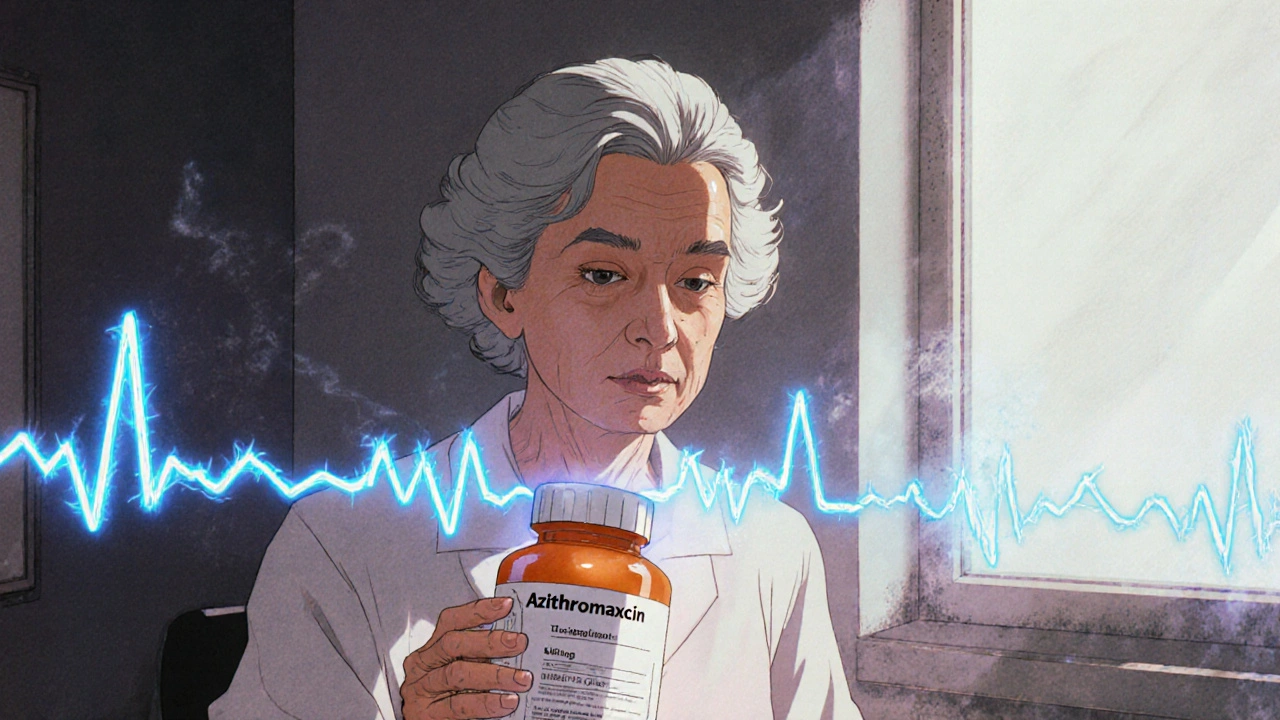When your heart’s electrical system takes too long to reset between beats, it’s called QT prolongation, a delay in the heart’s repolarization phase that can trigger life-threatening irregular rhythms. Also known as long QT syndrome, this isn’t always genetic—it’s often caused by medications, electrolyte imbalances, or other health conditions. The problem? A prolonged QT interval on an ECG doesn’t always cause symptoms until it’s too late—suddenly, your heart can flip into torsades de pointes, a dangerous type of ventricular arrhythmia that can lead to fainting, seizures, or sudden cardiac arrest.
Many common drugs can mess with your heart’s rhythm, even if they’re not meant for heart conditions. Antibiotics like clarithromycin, a macrolide antibiotic often prescribed for respiratory infections, antifungals like ketoconazole, certain antidepressants like citalopram, and even some anti-nausea meds like Compazine (prochlorperazine) are known culprits. It’s not about taking one pill—it’s about stacking risks. Taking two QT-prolonging drugs together, or mixing them with diuretics that drop potassium or magnesium, can push you over the edge. People with existing heart conditions, older adults, or those with kidney or liver issues are at higher risk, but it can happen to anyone.
There’s no warning sign you can feel before it happens. Some people get dizzy, have palpitations, or pass out—others just collapse without warning. That’s why it’s critical to know what you’re taking. If you’re on any prescription or even an OTC med, ask your doctor or pharmacist: "Could this affect my QT interval?" Keep a list of all your meds, including supplements. If you’ve ever had unexplained fainting, especially during exercise or stress, get an ECG. It’s simple, quick, and could save your life.
The posts below cover real cases and practical advice on how medications interact with your heart rhythm. You’ll find guides on drugs like Bicalutamide, Compazine, and even common pain relievers—each with clear warnings about QT risks. Whether you’re managing chronic pain, mental health, or infections, you’ll see which meds to watch for, what labs to track, and how to talk to your provider without sounding alarmist. This isn’t just about avoiding bad drugs—it’s about making smart, informed choices so your heart stays steady.

Hydroxyzine can cause dangerous heart rhythm problems like QT prolongation and Torsade de Pointes, especially in older adults or those on other medications. Learn who's at risk and what safer options exist.

Macrolide antibiotics like azithromycin and clarithromycin can prolong the QT interval and trigger life-threatening heart rhythms in high-risk patients. Learn who's most vulnerable and how to avoid dangerous interactions.